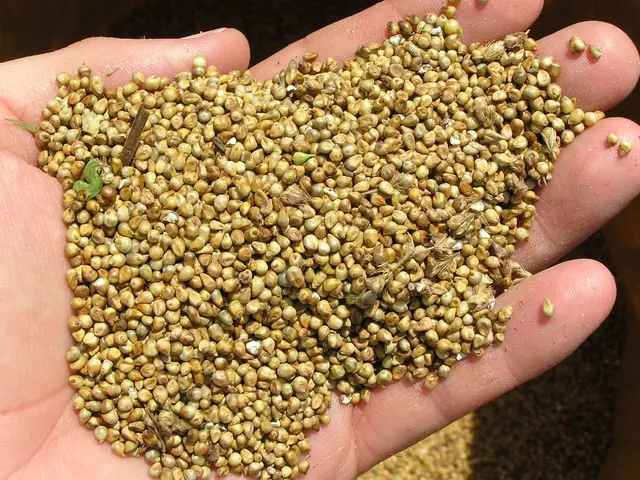Consuming Sweetened Beverages Could Potentially Boost Chances of Developing Type 2 Diabetes Significantly
A new meta-study suggests that consuming sugar-sweetened beverages, such as soft drinks and fruit juices, can significantly increase the risk of developing type 2 diabetes, while eating sugar in solid foods might actually lower this risk.
The study, led by researchers at Brigham Young University in Utah, gathered findings from 29 studies conducted globally and was published in the journal 'Advances in Nutrition'.
While the connection between sugar and the development of type 2 diabetes has been previously established, this study provides further evidence that the risk is more complex than anticipated. According to the study, daily consumption of a 12-ounce serving of a sugar-sweetened beverage increases the risk of diabetes by 25%. Fruit juice, although considered a healthier alternative, still carries a 5% increased risk with each serving.
Surprisingly, the study found that an intake of 20 grams of sugar per day may have an inverse relationship to the risk of developing type 2 diabetes. This suggests that eating sugar may make a person less likely to develop the condition.
Lead author Karen Della Corte, a PhD and Assistant Professor of Nutrition, Dietetics, and Food Science at Brigham Young University, said, "Our hypothesis was shaped by emerging research on glycemic response, liver metabolism, and the concept of the food matrix. Our results show that the health effects of sugar depend heavily on how it's consumed."
When sugar is consumed in liquid form, such as through sweetened beverages, it enters the body in a different manner than it does when consumed with food. This rapid delivery can overwhelm the body, leading to sharp blood sugar spikes and insulin responses, which can contribute to an increased risk of type 2 diabetes.
On the other hand, sugars that are ingested with food are absorbed more slowly and readily by the body, due to the presence of fiber, protein, and other nutrients in the food. These nutrients slow down digestion, preventing the spikes in blood sugar and insulin levels that can lead to insulin resistance and type 2 diabetes over time.
"I don't support very low-carb diets because research shows they are often linked to high LDL and apoB levels, and can cause fast progression of plaque formation in the arteries," noted Michelle Routhenstein, a Preventive Cardiology Dietitian and Heart Health Expert who was not involved in the study. Instead, she emphasized the importance of choosing carbs wisely, pairing them with fiber, protein, and healthy fats to slow sugar absorption and support overall health.
In conclusion, the study supports the idea that sugar has a place in a healthy diet, as long as it does not come from sweetened liquids like soft drinks or fruit drinks. Consuming sugar-sweetened beverages is associated with a higher risk of developing type 2 diabetes, due to their high glycemic load and lack of nutrients that slow digestion. Limiting or avoiding these drinks can help lower the risk of diabetes, while still allowing for small amounts of sugar from solid foods that provide beneficial nutrients.
- The study, which was led by researchers at Brigham Young University and published in the Journal 'Advances in Nutrition', suggests that a daily consumption of a 12-ounce serving of a sugar-sweetened beverage increases the risk of diabetes by 25%.
- Surprisingly, the study found an inverse relationship between the risk of developing type 2 diabetes and an intake of 20 grams of sugar per day, suggesting that eating sugar may make a person less likely to develop the condition.
- The study, which gathered findings from 29 studies conducted globally, provides further evidence that the risk of developing type 2 diabetes is more complex than anticipated, with the health effects of sugar depending heavily on how it's consumed.
- According to the study, while fruit juice, although considered a healthier alternative, still carries a 5% increased risk with each serving, sugars that are ingested with food are absorbed more slowly and readily by the body, due to the presence of fiber, protein, and other nutrients in the food, which slows down digestion and prevents sharp blood sugar and insulin spikes that can lead to insulin resistance and type 2 diabetes over time.




